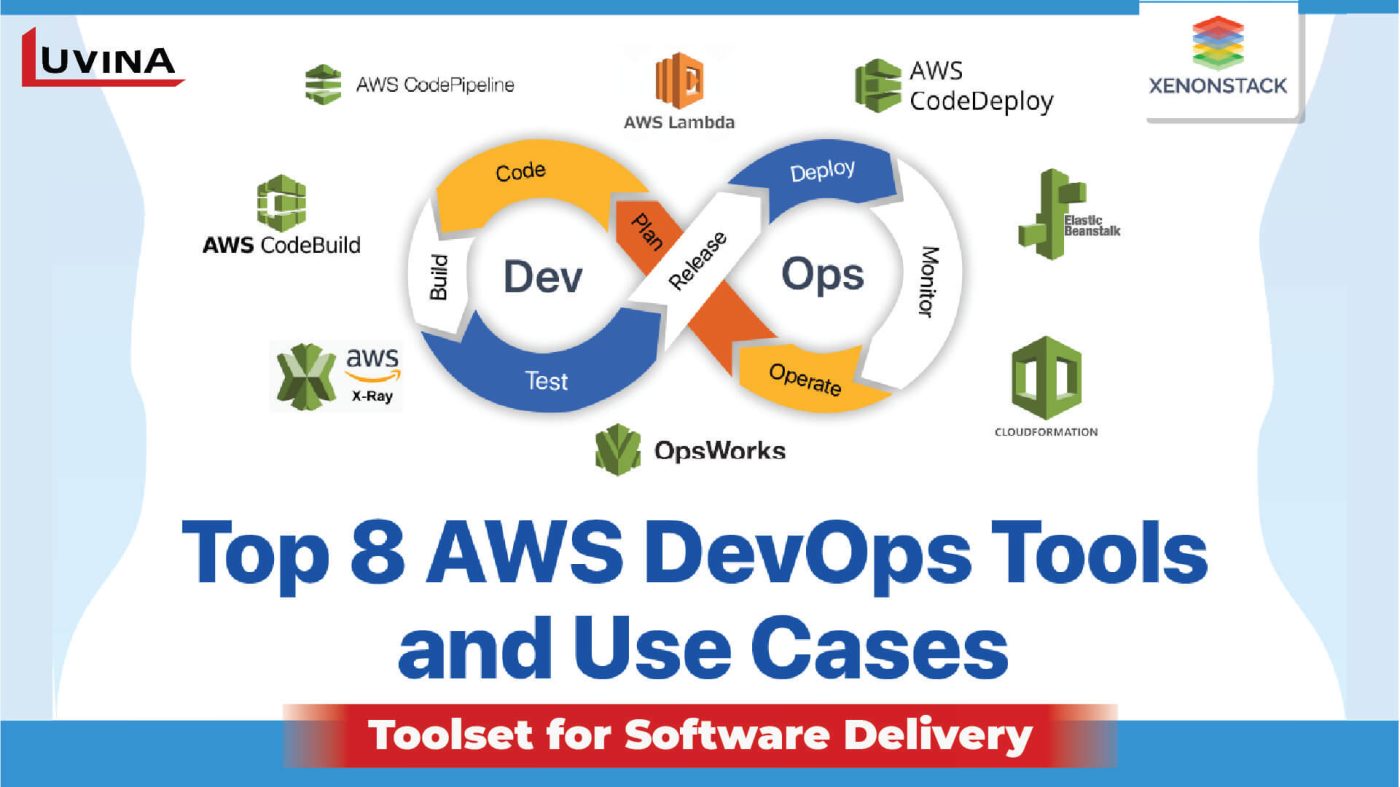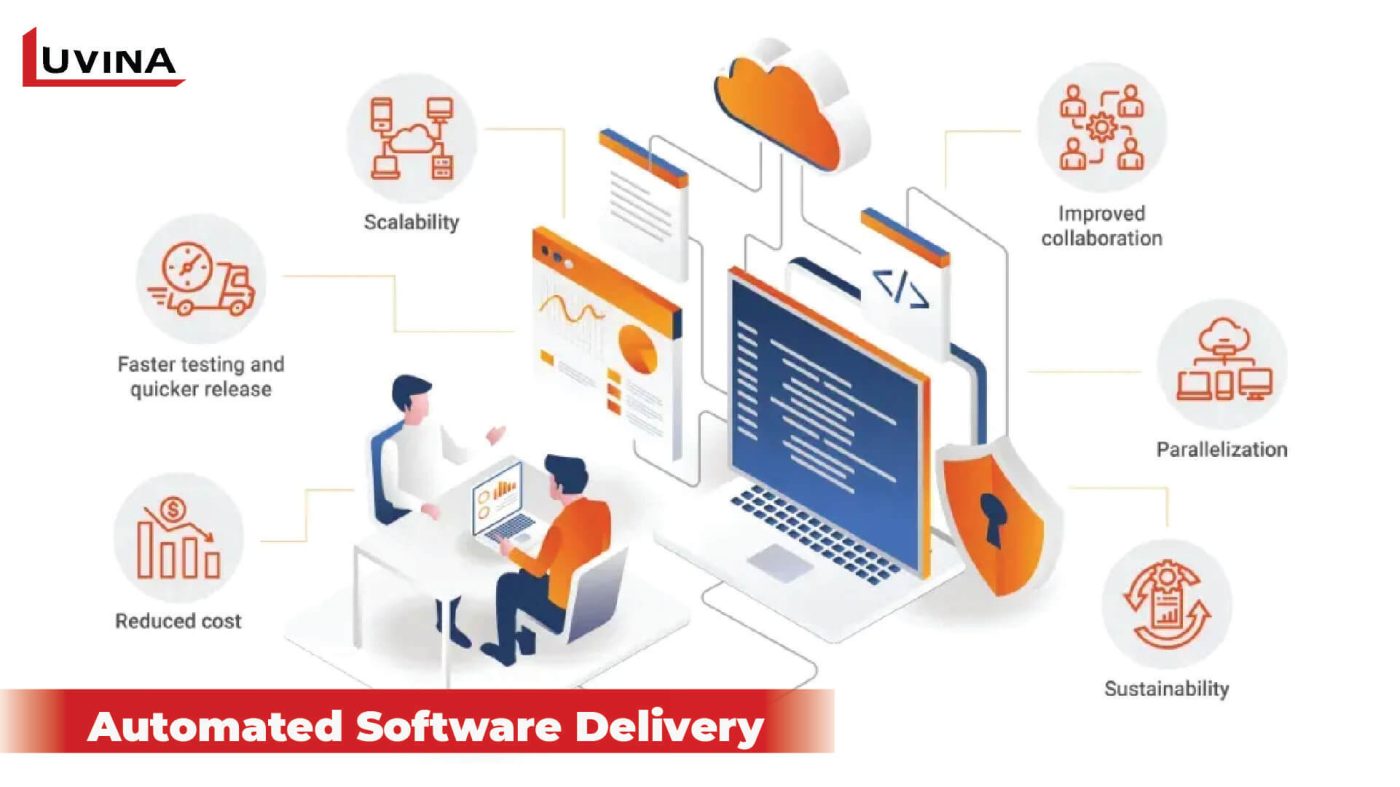In today’s software landscape, AWS DevOps Services stand at the forefront of modernizing and expediting software delivery. This introductory section sets the stage by outlining the pivotal role these services play in reshaping how software is developed, delivered, and maintained.
AWS DevOps Services redefines the traditional paradigms of software development by offering an expansive suite of tools and practices aimed at optimizing the entire software delivery lifecycle. Their significance lies in the seamless integration of development and operations, fostering a culture of collaboration, automation, and efficiency.
By leveraging AWS DevOps Services, organizations unlock the potential for streamlined workflows, accelerated releases, and enhanced reliability in their software deployments. This section aims to illuminate the transformative power of these services in propelling software development forward in an agile, efficient, and scalable manner.
AWS DevOps Tools and Offerings
In the realm of AWS DevOps, a suite of tools serves as the backbone for efficient software delivery. Let’s dive into three key offerings that redefine how software is built, deployed, and managed within AWS.

AWS CodePipeline: Powering Continuous Integration and Delivery (CI/CD)
AWS CodePipeline orchestrates an automated workflow, seamlessly integrating code changes and deploying them to production environments. This robust tool automates the software release process, enabling teams to swiftly iterate and deliver high-quality code. By facilitating continuous integration and delivery, CodePipeline ensures a consistent and reliable deployment pipeline.
AWS CodeBuild and CodeDeploy: Automating Build and Deployment Processes
AWS CodeBuild simplifies the build process by compiling source code, running tests, and producing deployable artifacts. Meanwhile, CodeDeploy automates application deployment to various computing services, ensuring smooth, error-free deployments. These tools work in tandem to automate build and deployment procedures, streamlining the software delivery lifecycle.
AWS CloudFormation: Orchestrating Infrastructure as Code (IaC) and Automated Resource Provisioning
AWS CloudFormation revolutionizes infrastructure management by allowing the definition of resources in a declarative template. This template-driven approach enables the automated provisioning of AWS resources, ensuring consistency and repeatability in deployments. CloudFormation embodies Infrastructure as Code (IaC), transforming manual processes into automated, scalable, and manageable resources.
The synergy of these AWS DevOps tools reshapes how software is developed, tested, and deployed, emphasizing automation, reliability, and scalability in software delivery pipelines.
Automating Excellence with AWS DevOps
In the dynamic landscape of software delivery, AWS DevOps emerges as a powerhouse, offering a spectrum of automation capabilities that redefine traditional development practices. Let’s explore how these tools pave the way for a new era of streamlined, efficient, and scalable application delivery.

Harnessing Automation Capabilities with AWS DevOps
AWS DevOps tools streamline the development pipeline by automating critical processes, including testing, deployment, and application scaling. These robust capabilities not only expedite the delivery process but also ensure consistent quality and reliability throughout the software lifecycle.
Empowering Automated Testing, Deployment, and Scalability
With AWS DevOps, automated testing becomes more than just a process—it’s a cornerstone of software quality. Deployment, once a daunting phase, transforms into a swift, error-free endeavor. Additionally, scaling applications to meet evolving demands becomes a seamless, automated task, ensuring optimum performance and user experience.
In embracing automation through AWS DevOps, businesses navigate the competitive landscape with agility, precision, and a definitive edge, fostering innovation and excellence in their software delivery endeavors.
Elevating Applications: Scalability and Reliability with AWS DevOps
AWS DevOps Development Services serve as a catalyst for enhancing the scalability and reliability of applications, reshaping how businesses approach their infrastructure and deployment strategies. Let’s delve into the robust features and tools that bolster scalability and reliability within AWS DevOps.
Supporting Scalability and Reliability: AWS DevOps Services at the Helm
AWS DevOps Services play a pivotal role in bolstering the scalability and reliability of applications. By harnessing these services, businesses achieve seamless scalability, ensuring applications can effortlessly accommodate varying workloads without compromising performance or reliability.

Containerized Scalability: AWS Elastic Beanstalk, ECS, and EKS
AWS offers a trio of container management services—Elastic Beanstalk, ECS (Elastic Container Service), and EKS (Elastic Kubernetes Service). These services enable businesses to deploy and manage scalable containerized applications effortlessly. Elastic Beanstalk simplifies the process by automatically handling the deployment, ECS ensures reliable and scalable container orchestration, while EKS provides a managed Kubernetes environment for containerized workloads.
Serverless Computing and Microservices Architecture: Leveraging AWS Lambda
AWS Lambda, a key player in serverless computing, empowers businesses to break down applications into microservices. It allows for efficient, event-driven computing without the need for managing underlying infrastructure. Leveraging Lambda facilitates agile and cost-effective microservices architectures, ensuring scalability and reliability while eliminating infrastructure management concerns.
AWS DevOps’ dedication to scalability and reliability, coupled with its array of services catering to containerization and serverless computing, propels applications towards heightened performance, scalability, and fault tolerance, revolutionizing the way businesses manage and deploy their software solutions.
>> Also read: Maximizing Efficiency: DevOps Strategies for Microservices
Safeguarding Software: Security and Compliance in AWS DevOps
Security and compliance are paramount in the realm of AWS DevOps, ensuring that software delivery remains not only efficient but also secure and compliant. Let’s explore how AWS DevOps practices prioritize security measures and compliance frameworks.

Securing AWS DevOps: A Fundamental Practice
Security within AWS DevOps practices is foundational. It encompasses a multifaceted approach to safeguarding assets, data, and workflows. From identity management to data encryption and beyond, AWS DevOps adheres to robust security principles throughout the development lifecycle.
AWS IAM and Security Best Practices
AWS Identity and Access Management (IAM) forms the cornerstone of security within AWS DevOps. It empowers organizations to control user access, manage permissions, and safeguard AWS resources. By adhering to IAM’s best practices, such as implementing least privilege access and regular access reviews, organizations fortify their security posture.
Compliance Measures and Tools in AWS DevOps Workflows
Compliance measures are integral in ensuring adherence to industry standards and regulations. AWS DevOps offers an array of compliance tools and frameworks. These tools aid in meeting diverse compliance requirements, such as HIPAA, GDPR, or PCI DSS, thereby enabling businesses to align their DevOps workflows with industry-specific regulations and standards.
By prioritizing security through IAM, adhering to security best practices, and leveraging compliance tools, AWS DevOps establishes a robust foundation for secure and compliant software delivery. This proactive approach mitigates risks, fosters trust, and ensures that software deployments meet the highest security and compliance standards.
Peak Performance: Optimizing and Monitoring with AWS DevOps
Optimizing performance and monitoring application health are critical facets of AWS DevOps, ensuring applications operate at their best. Let’s explore how AWS DevOps Services pave the way for optimized performance through strategic optimization and robust monitoring.
AWS DevOps Services offers a suite of strategic optimization strategies to fine-tune application performance. These strategies encompass optimizing resource utilization, load balancing, and employing scalable architectures. By implementing these practices, businesses ensure that applications deliver optimal performance even during peak usage.

AWS CloudWatch emerges as a pivotal tool for monitoring performance metrics and logging within AWS DevOps. It enables real-time monitoring, collecting and tracking of application performance metrics, logs, and events. By leveraging CloudWatch’s insights, organizations gain valuable visibility into their systems, allowing proactive identification and resolution of performance bottlenecks.
By employing optimization strategies, harnessing monitoring tools like AWS CloudWatch, and drawing insights from real-time monitoring examples, AWS DevOps Services offers a holistic approach to performance optimization. This approach ensures that applications consistently deliver high performance, resilience, and reliability in a dynamic environment.
>> Also read: Empowering Innovation: Azure DevOps Development Unveiled
Conclusion
AWS DevOps Services stand as a cornerstone in reshaping software delivery paradigms, elevating the standards of efficiency, reliability, and scalability. Let’s recapitulate the pivotal role these services play in revolutionizing software delivery and empowering businesses to thrive in the digital realm.
In embracing AWS DevOps Services, businesses embark on a journey towards unparalleled software delivery excellence. The efficiency, reliability, and scalability offered by these services not only foster innovation but also ensure that applications stand resilient in a competitive landscape.
For transformative software delivery solutions leveraging AWS DevOps Services, reach out to Luvina.









Read More From Us?
Sign up for our newsletter
Read More From Us?
Sign up for our newsletter